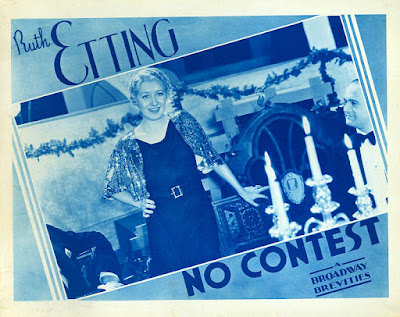The Wilburn Brothers were a popular American country music
duo
from the 1950s to the 1970s consisting of brothers Virgil Doyle Wilburn
(July 7, 1930 – October 16, 1982) and Thurman Theodore "Teddy"
Wilburn (November 30, 1931 – November 24, 2003).
The brothers were born in Hardy, Arkansas. They first
attracted attention as child performers, beginning in 1937, in an act called
 The Wilburn Children; Roy Acuff discovered them and brought them to the Grand
Ole Opry in 1940. Due to federal child labour laws, the Wilburns were forced to
leave the Opry after six months.
The Wilburn Children; Roy Acuff discovered them and brought them to the Grand
Ole Opry in 1940. Due to federal child labour laws, the Wilburns were forced to
leave the Opry after six months.
 The Wilburn Children; Roy Acuff discovered them and brought them to the Grand
Ole Opry in 1940. Due to federal child labour laws, the Wilburns were forced to
leave the Opry after six months.
The Wilburn Children; Roy Acuff discovered them and brought them to the Grand
Ole Opry in 1940. Due to federal child labour laws, the Wilburns were forced to
leave the Opry after six months.
After growing up, they continued to travel and were regulars
on the similar Louisiana Hayride program in Shreveport from 1948 until 1951.
After the family act disbanded, and the brothers served stints in the US Army
during the Korean War, they continued in 1953 as The Wilburn Brothers touring
with Faron Young and Webb Pierce. They signed with Decca Records in May 1954
and had their first hit record the same year titled "Sparkling Brown Eyes."
Other notable hits include "Go Away With Me" (1956), "Which One
Is To Blame" (1959), "Trouble's Back In Town" (1962), "It's
Another World" (1965), and "Hurt Her Once For Me" (1967).
In 1956, the Wilburns were offered the chance to record "Heartbreak Hotel" before Elvis Presley. After hearing the song they decided against recording it, describing it as "strange and almost morbid".
 In addition to being successful artists, the Wilburns formed
the Wil-helm Talent Agency (with Don Helms) in the early 1960s as well as the
Surefire Music Publishing Company in 1963. They were instrumental in launching
the careers of many country music legends, most notably Loretta Lynn, whom they
signed to their music publishing company. Lynn was the "girl singer"
of the Wilburns' touring show between 1960 and 1968 and she made weekly
appearances on their syndicated television show from 1963
In addition to being successful artists, the Wilburns formed
the Wil-helm Talent Agency (with Don Helms) in the early 1960s as well as the
Surefire Music Publishing Company in 1963. They were instrumental in launching
the careers of many country music legends, most notably Loretta Lynn, whom they
signed to their music publishing company. Lynn was the "girl singer"
of the Wilburns' touring show between 1960 and 1968 and she made weekly
appearances on their syndicated television show from 1963  to 1971 They also
helped develop the career of Patty Loveless between 1973 and 1975 by having her
tour with them on weekends and during school breaks.
to 1971 They also
helped develop the career of Patty Loveless between 1973 and 1975 by having her
tour with them on weekends and during school breaks.
The Wilburn Brothers had a syndicated television program,
The Wilburn Brothers Show, which ran from 1963 to 1974, with 354 half-hour
episodes produced. Reruns can still be seen on the cable network RFD-TV and in
the UK on Rural TV. They were Opry members from 1953 until the time of Doyle's
death from cancer in 1982 (at age 52).
Teddy continued with the Opry as a solo
artist until his health began to decline in the 1990s. He suffered from PSP and
died in 2003, six days before his 72nd birthday. They are both buried in the Nashville National
Cemetery in Nashville, Tennessee.
(Info Wikipedia)



















































